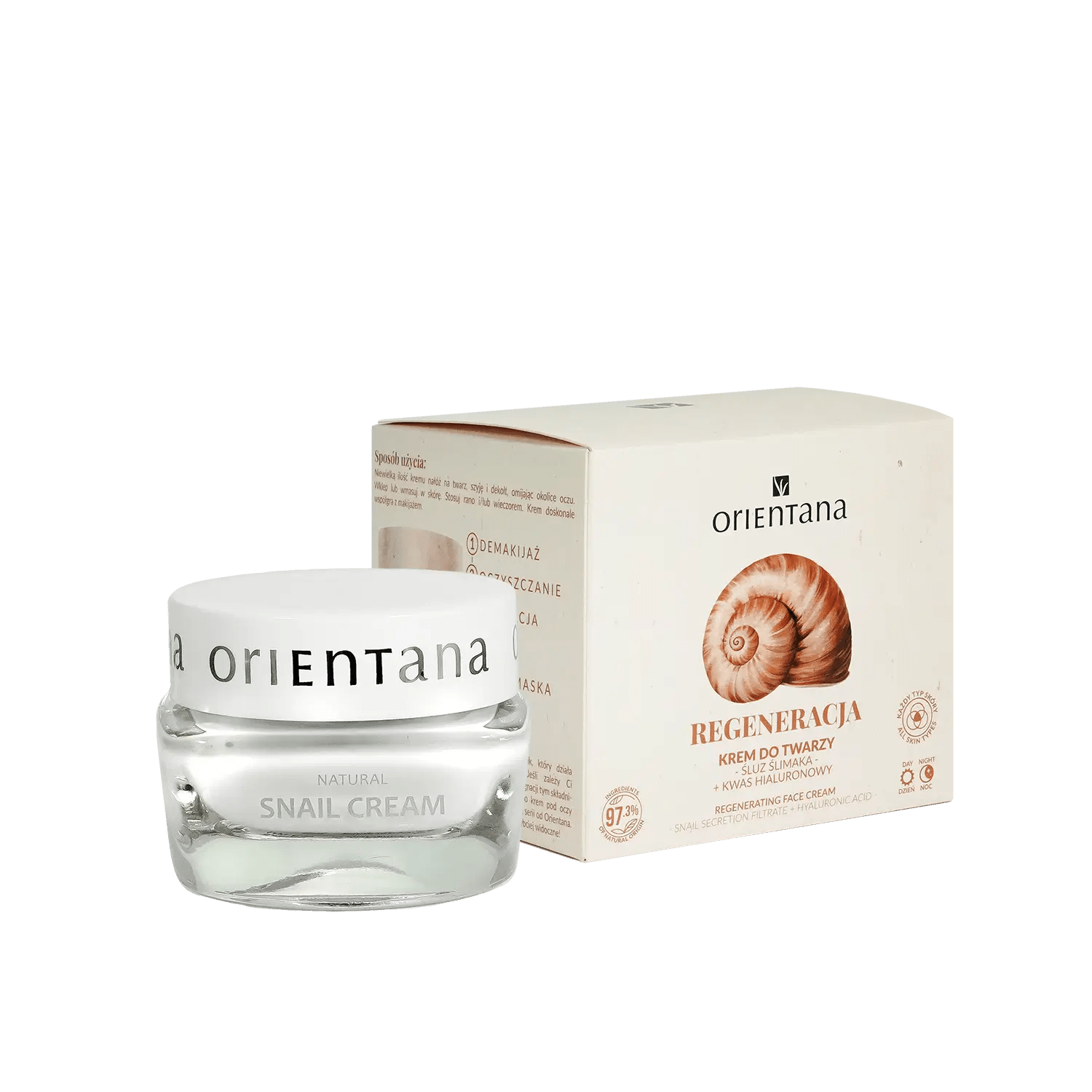Collagen is the most abundant protein in the human body, accounting for about 30% of total protein mass. It plays a key role as the primary structural component of connective tissue, including skin, bones, tendons, cartilage, and blood vessels. Its main function is to ensure the structural integrity of tissues and organs, giving them mechanical strength, flexibility, and elasticity.
The Role of Collagen in Maintaining Healthy Skin and Hair
In the context of skin health, collagen plays an invaluable role. It provides elasticity, firmness and proper hydration, which translates into a young and healthy appearance. Collagen participates in cell renewal processes, supports wound healing and protects the skin from the harmful effects of external factors.
When it comes to hair, collagen supports the health of hair follicles, which affects their growth and condition. It helps maintain the structure of the scalp, providing it with elasticity and resilience. As a result, hair becomes stronger, more flexible and less susceptible to damage.
As we age, the body's natural collagen production decreases, which leads to loss of skin elasticity, wrinkles, and weakened hair structure. That's why it's important to maintain its proper level through a healthy diet, supplementation, and the use of appropriate cosmetics.
What is collagen?
Collagen is the most common structural protein in the human body, accounting for about 30% of all proteins. It plays a key role in ensuring the integrity and elasticity of tissues such as skin, bones, tendons and cartilage.
At least 28 different types of collagen have been identified in the human body, each of which has specific functions and is found in specific tissues. The most important include:
• Type I collagen: The most common, accounting for about 90% of the total collagen in the body. It is found mainly in the skin, tendons, bones and teeth, providing them with strength and elasticity.
• Collagen type II: Present primarily in joint cartilage, where it is responsible for their elasticity and shock absorption.
• Collagen Type III: Found in reticular connective tissue, blood vessels, and skin, supporting the structure of internal organs and vessels.
• Type IV Collagen: Forms basement membrane structures that separate and support different tissue layers, such as the epithelium and endothelium.
• Type V collagen: Co-occurs with type I collagen, playing a role in the formation of collagen fibers and is found in skin, bones, and placenta.
The diversity of collagen types allows their properties to be adapted to the specific requirements of different tissues, which is crucial for the proper functioning of the body.
The role of collagen in the skin
Collagen is an important building block of tissues, responsible for the elasticity and firmness of the skin. Its fibers create a structure that gives the skin strength and elasticity, which translates into its healthy appearance. Additionally, collagen has the ability to retain water, which helps maintain proper skin hydration. Moisturized skin is less prone to dryness, flaking and wrinkling.
The effect of collagen on delaying skin aging processes, such as wrinkle formation
With age, the body's natural collagen production decreases, which leads to a loss of skin elasticity and firmness, and consequently to wrinkles. Regular supplementation with good quality collagen can improve skin elasticity, firmness and tension, reduce the visibility of cellulite and strengthen hair and nails. Additionally, using cosmetics containing collagen can improve skin hydration, elasticity and density, which translates into a reduction in the visibility of wrinkles.
In summary, collagen plays a fundamental role in maintaining the health and youthful appearance of the skin, influencing its elasticity, firmness and hydration, and its appropriate level can delay the skin aging processes.
The role of collagen in hair
Collagen is a protein that supports hair structure by providing essential amino acids for the production of keratin, the main building block of hair. This makes hair stronger, more flexible and resilient, which translates into a healthier appearance and less susceptibility to breakage.
Protecting hair from mechanical and environmental damage
Collagen creates a protective layer on the surface of the hair, which protects it from harmful external factors, such as UV radiation, environmental pollution or high temperatures during styling. Additionally, collagen helps maintain proper hair hydration, which protects it from drying out and related damage.
Regular collagen supplementation can support hair regeneration processes, making them stronger, thicker and less susceptible to mechanical damage.
In summary, collagen plays a key role in maintaining hair health, strengthening its structure, increasing elasticity and protecting against various types of damage.
Natural decline in collagen production
Collagen production begins to decline after the age of 25, at a rate of about 1% per year. After the age of 50, collagen synthesis is lower than its breakdown, and around the age of 70, the body practically stops producing it. Additionally, factors such as UV radiation, smoking, stress, or an unhealthy diet can accelerate collagen degradation.
The effects of collagen deficiency on skin and hair
The reduction of collagen in the skin results in the formation of wrinkles, a reduction in firmness and an increase in laxity. In addition, a deficiency of collagen can lead to weakening of the hair, making it more susceptible to breakage and loss.
In summary, the natural decline in collagen production with age negatively affects the condition of the skin and hair, leading to visible signs of aging and a deterioration of their structure and appearance.
Collagen supplementation
Available forms of collagen
• Hydrolyzed collagen: This is collagen that has undergone a hydrolysis process that breaks down the protein into smaller peptides, which increases its absorption. This is the most commonly used form in dietary supplements.
• Collagen Powder: A powdered form of collagen that can be easily dissolved in water or other liquids. It allows for flexible dosing and is a popular choice for people who prefer to add collagen to their daily drinks or meals.
• Collagen in capsules/tablets: A convenient form of supplementation, allowing precise dosing. Ideal for people who value simplicity and ease of use.
• Liquid collagen: Ready-to-consume liquid forms of collagen, often enriched with additional ingredients, such as vitamins or minerals, supporting its action. Considered to be well-absorbed and convenient to use.
Benefits of supplementation for improving skin and hair condition
• Improving skin elasticity and firmness: Regular intake of collagen can significantly improve skin elasticity, increase its firmness and reduce the appearance of wrinkles.
• Skin hydration: Collagen acts as a natural moisturizer, retaining water in the epidermis and improving hydration, which makes the skin look healthier.
• Strengthening the hair structure: Collagen affects the elasticity and density of hair, which helps prevent breakage and split ends.
• Hair Growth Stimulation: Regular collagen supplementation can stimulate hair follicles to produce new strands, leading to thicker, healthier hair.
• Protection against damage: Collagen helps protect hair from harmful environmental factors such as wind and dry air.
Choosing the right form of collagen depends on individual preferences and lifestyle. It is important that supplementation is regular and combined with a healthy diet and proper care, which will allow you to achieve the best results in improving the condition of your skin and hair.
Collagen in cosmetics
Collagen is commonly used in a variety of cosmetic products:
• Creams: These products are designed to moisturize the skin, improve its elasticity and reduce the appearance of wrinkles. Regular use of collagen creams can support the skin's regenerative processes, contributing to its smoother and tighter appearance.
• Serum: Thanks to their concentrated formula, serums with collagen intensively moisturize and nourish the skin, supporting its regeneration and improving elasticity.
• Face masks: Collagen masks provide the skin with nutrients that help regenerate, moisturize and firm the skin.
The impact of collagen cosmetics on skin hydration and elasticity
Using cosmetics containing collagen brings numerous benefits to the skin:
• Moisturizing: Collagen has the ability to bind water, which helps maintain the right level of skin hydration. This makes the skin softer, smoother and radiant.
• Elasticity and firmness: Regular use of cosmetics with collagen can help improve skin elasticity and firmness, which helps reduce the appearance of wrinkles and delay the aging process.
Introducing collagen into your daily skin care routine, through the use of appropriate cosmetics, can significantly improve your skin’s condition, providing hydration, elasticity and a youthful appearance.
Diet to support collagen production
Foods rich in amino acids necessary for collagen synthesis
Collagen synthesis requires the presence of specific amino acids, such as glycine, proline, and lysine. Sources of these amino acids include:
• Meat: Beef, chicken and pork provide amino acids necessary for collagen production.
• Fish: Fish skin in particular is rich in collagen and amino acids that support its synthesis.
• Eggs: Egg protein contains proline and glycine, crucial for collagen production.
• Dairy products: Rich in amino acids that support collagen synthesis.
The role of vitamins and minerals in the collagen production process
In addition to amino acids, collagen synthesis requires the presence of specific vitamins and minerals:
• Vitamin C: Plays a key role as a cofactor for enzymes involved in collagen synthesis, supporting the formation of stable collagen fibers. Citrus fruits, peppers, broccoli and berries are rich in vitamin C.
• Zinc: Supports the collagen synthesis process and stabilizes its structure. Found in meat, nuts, pumpkin seeds and seafood.
• Copper: Participates in the formation of cross-links in the collagen structure, which ensures its strength. It is present in liver, cocoa and cashew nuts.
• Sulfur: It participates in collagen synthesis by creating sulfur bonds that stabilize its structure. Products rich in sulfur include garlic, onion and cabbage.
Including these ingredients in your daily diet can significantly support your body's natural collagen production, helping to maintain healthy and supple skin and strong joints.






